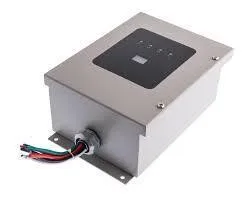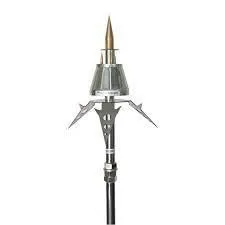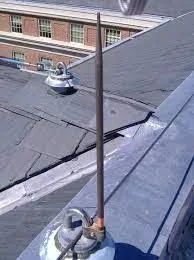Lightning strikes and electrical discharges due to nearby lightning can cause considerable damage to a structure and can even cause injury or death to a person. It affects different components of a structure and can have Thermal, Electrodynamic and Inductive Effects. Some serious risks associated with lightning are:
- Deaths/injury
- Fire
- Loss of data/ computer systems/ equipment
- Structural damage
- Phone lines cut off
- Loss of alarms
- Damage to plumbing systems
Latest cases of the lightning in India ;
- Rajasthan: One dead, nine injured as lightning strikes acid tank at zinc plant- Ten employees present at the scene were burnt due to acid leakage after lightning struck the tank at Hindustan Zinc’s hydro plant.
- Karnataka: 14-year-old boy succumbs to electric shock caused by lightning strike.During lightning struck he tried to remove the phone from the charger resulting in an electric shock and immediate death of the boy.
Discussed above are two recent cases, similar instances could be prevented with an effective lightning protection in place. The first one caused due to lack of external lightning protection and the second one due to internal light protection
Lightning protection systems are designed to protect structures getting damaged during heavy lightning. They protect the internal electrical components of a building, helping to prevent fires or electrocution. These systems create pathways for lightning strikes to travel safely from the top of a structure to the ground with a lightning conductor.

Why do we need a lightning protection system?
A lightning protection system intercepts the lightning current and diverts it safely to the earth without causing any damage to the structure. The external and internal lightning protection systems must be balanced to counter the lightning, conduct it to the earth and finally disperse it into the earth. Right lightning protection systems enable us to;
- External lightning protection- channeling the lightning strike in a safe and controlled manner to the earth termination network
- Internal lightning protection (Electronic systems protection)- protection of damage to vital electronic systems.
Components of lightning protection system
The basic components of a lightning protection system includes;
- Air terminals- these are metal rods that serve as the first exposure point for lightning strike. These are set up on the top of a structure.
- Main conductor cables-heavy twisted or aluminum copper cable (or thicker) which is connected to the air terminal and/or runs near the ridge or other building high points, routed to the ground.
- Ground rods – composed of a corrosion-resistant alloy of copper and steel and are connected to the cables.
- Bonding & Mounting hardware—used to splice or connect between air terminals, cables, ground rods.
- Lightning arresters/surge protection- electrical devices installed in or on a building’s electrical components and designed to protect electrical equipment from the electrical surge that occurs when lightning strikes a nearby power line.
Types of lightning protection systems;




Different types of Lightning Protection Systems
Franklin Rods
These are metal rods installed over a structure and their terminals are connected to a network of horizontal and vertical conductors.
Pulsing Lightning Rods
These devices apply a pulsed high voltage to an air terminal’s tip which gives positive ground currents going upward meeting descending negative leader strokes.
Lightning conductor with meshed cage
This type of light consists of mesh used across the covering of the roofs and side walls of the structures. It is used for highly exposed buildings housing very sensitive installations such as computer rooms.
Faraday cage
A Faraday cage is a container that anchors electromagnetic radiation. It distributes the charge or radiation around the cage’s exterior, it cancels out electric charges or radiation within the cage’s interior.
Early Streamer Emission (ESE)
Early Streamer Emission (ESE) Lightning is a terminal that is mounted on the top of a structure. It is especially effective for lightning protection of industrial sites, public buildings and sports arenas.
Surge Protection Devices (SPD)
Surge Protection Devices (SPD) are used for electric power supply networks, telephone networks, ,communication and automatic control buses. It is a component of the electrical installation protection system and commonly used for overvoltage protection.
How does a light protection system work?
A metal rod is placed on top of a building to protect it from a lightning strike. This is known as a lightning conductor. This conductor is struck first by lightning without hitting the building directly, preventing fire or electrocution. The process is discussed below;
- A series of copper or aluminum conductors are outlined across the structure
- The conductors are attached to the ground rod welded or connected with a copper mechanical connection.
- At the top of the structure, the conductors are connected to a series of copper or aluminum lightning rods.
- When there is a positive charge on the ground, the copper or aluminum cables act as perfect conductors and direct the current up to the lightning rods
- When lightning strikes the lightning rod, the system safely transmits it to the ground
Conclusion
Damage caused by lightning can lead to equipment downtime, costly replacements and disruption to productivity, herein the lightning protection system comes to the rescue. It is used across residential, commercial and industrial buildings. Assessing and installing a safe Lightning Protection System is not an easy task. It requires expert installation and supervision. In this article, we have discussed the importance, and types of lightning systems, in an upcoming series we will discuss the different types of lightning system products.


